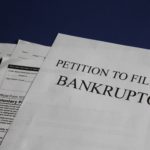The holiday season is a joyous time for most. But there’s also a downside – you could find yourself buried in a mountain of debt when the fun ends.
How Many Americans Go Into Debt During the Holiday Season?
Worried you’ll go into debt during the holiday season? You’re not alone. In fact, over 30 percent of Americans have this same fear. Fortunately, there are ways to prevent holiday debt and stay on track financially as you head into the new year.
And if the damage is already done, you’ll find tips in this guide to get rid of the overwhelming debt.
Tips to Prevent Holiday Debt
Below are some strategies to help you steer clear of holiday debt.
1. Create a Budget for the Holiday Season
Take a look at your current spending plan to determine how much disposable income is available for holiday shopping. If there’s little to none, consider cutting a few expenses to free up cash. You can also identify ways to earn extra money for the holidays and avoid going into debt.
If possible, create a budget several months in advance so you’ll have ample time to come up with the funds you need.
2. Increase Your Earnings Before the Holidays
To piggyback off the last point, ask your employer about overtime opportunities to possibly rake in extra cash. You can also increase your earnings before the holidays by taking on a part-time job, side gig or putting your gifts and talents to use to bring in additional income.
That way, you won’t have to tap into your savings account or go into debt to pay for gifts or holiday travel.
3. Automate Your Credit Card Payments
If you automate your credit card payments and stow your cards away, you’ll prevent holiday debt. But if you spend recklessly, chances are the scheduled payment won’t suffice, and you’ll need to make adjustments.
So, consider this tactic and only use cash to minimize the chances of burying yourself in a load of holiday debt.
How to Pay Off Credit Card Debt
Maybe the holidays have come and gone, and you’re stuck with a mountain of credit card or personal loan debt. Here are some tips for finding relief.
1. Take a Debt Consolidation Loan
A debt consolidation loan allows you to roll all your existing balances into a single product with a more competitive interest rate. The idea is to save a bundle in interest with a lower rate while repaying what you owe faster. And if you use a debt consolidation loan to pay off credit cards, your utilization will drop and possibly improve your credit score.
You’ll likely need good or excellent credit to qualify for a debt consolidation loan with competitive terms, though. Plus, the monthly payment could stretch your budget thin. So, it may not be a viable option for you.
2. Consider a Debt Management Plan
If you’ve struggled to create a debt-payoff strategy, try reaching out to a non-profit credit counseling agency for assistance. Some offer debt management plans to help you eliminate unsecured debt faster. You’ll repay what you owe, but the credit counselor will work with your creditors to possibly secure concessions, like lower interest rates and fee waivers. In turn, the creditor will typically close the credit card accounts, which could temporarily lower your credit score.
While enrolled, you’ll make the agreed-upon monthly payment. The agency will divide it up amongst creditors per the repayment schedule. Most plans are designed to be completed in 24 to 48 months.
3. Enroll in a Debt Settlement Program
Do you owe more than half of your gross annual income in unsecured debt? Or maybe you have so much debt that you can’t see yourself paying it off within the next five years? A debt settlement program could be ideal, but there are drawbacks to be aware of.
They’re designed to get you out of debt faster by reducing what you owe by a sizable amount. But your credit score could take a hit as you’ll ultimately pay your creditors less than what you owe. Still, you could get out of debt in just 12 months and start rebuilding your credit and overall financial health from scratch.
4. Consult with a Professional Debt Relief Firm
Not all debt relief firms are the same. Some make inflated promises they can’t deliver on, so you only want to do business with a professional debt relief firm that’s reputable and has a proven track record of success.







